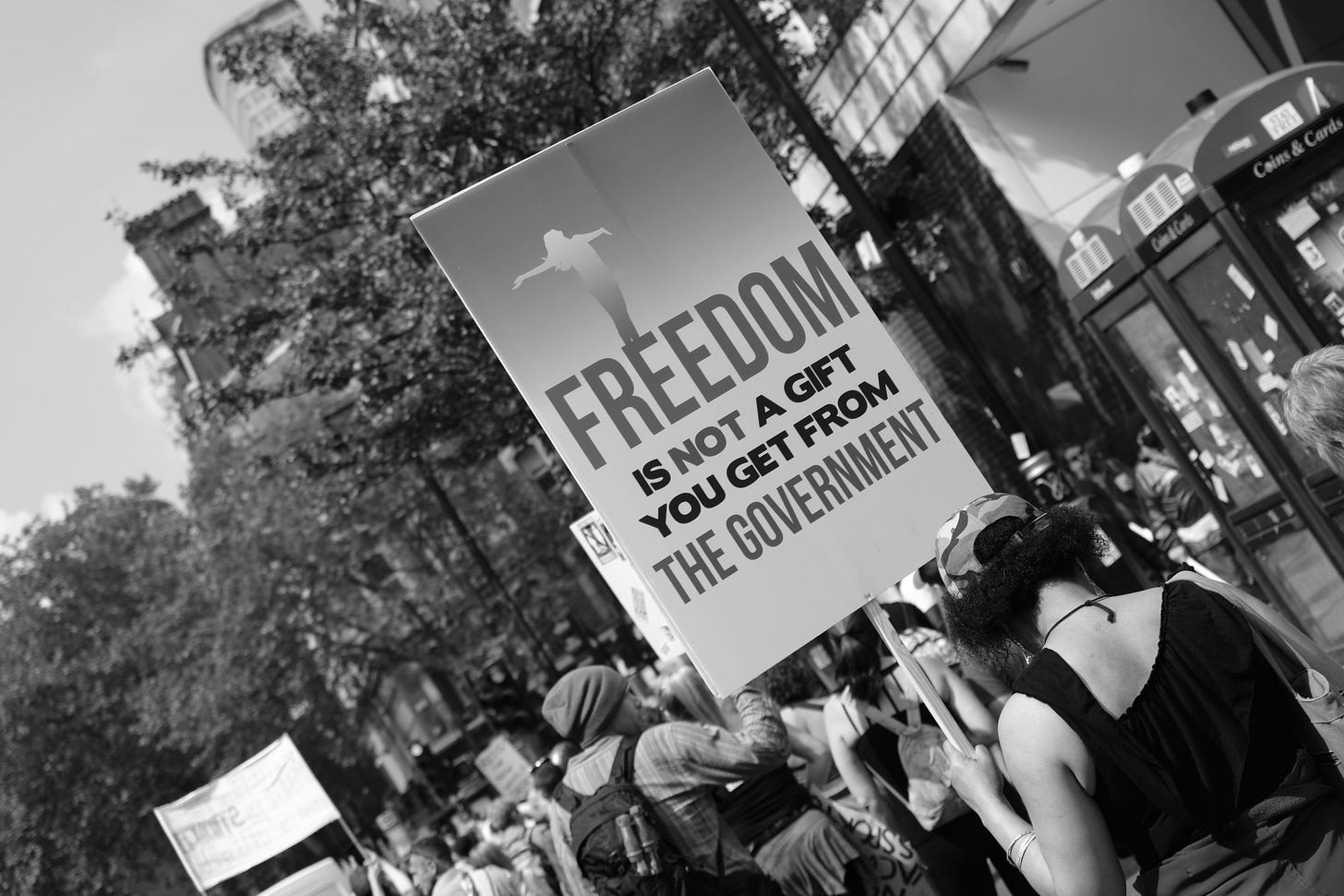A Dicey proposition: can Parliament "fix" a fraud by abolishing the rule of law?
What happens when the state rewrites the constitution to cover its tracks?
It began with something utterly mundane: my 2001 Ford Escort van, “parked safely beside a bush.” Yet somehow, this non-event has become the trigger for one of the most serious constitutional showdowns in modern British history.
I challenged the jurisdiction of a magistrates’ court because the summons was issued in the name of a ghost court — an entity with no statutory existence. Instead of proving its authority before trial, as required, court officials have simply “gone on the run.” Their stunt? Take the name of an administrative region — a Local Justice Area (LJA) — bolt on the words “Magistrates’ Court”, and hope nobody notices.
This bypasses the statutory requirement for a magistrates’ court to actually be created in law first. It’s like calling a patch of grass “Wimbledon Centre Court” and awarding yourself the trophy.
Why a “real” court matters
If we don’t need a real court, do we need a real crime, real evidence, real prosecution, real procedure, real judge, or real conviction before punishing people? The pre-existence of a lawful court isn’t a quirky legal nicety — it’s the foundation stone of the rule of law.
A fake court cannot produce a real conviction. Fabricating jurisdiction is as bad as fabricating an accusation — and arguably worse. For the outcome to be true and moral, it all has to be real, from the top down.
The mother of all legal voids
From the most trivial of motoring scenarios emerges the most extreme constitutional crisis. If this Single Justice Procedure jurisdiction fraud is proven, the British state may have been prosecuting millions of people for over a decade through non-existent tribunals.
That’s not an “oops, a clerical oversight” moment. That’s the “mother of all legal voids” — and a potentially catastrophic collapse of public trust in the criminal courts. If the High Court (or above) tries to cover it up, the contagion will spread to the rest of the justice system. The public isn’t so gullible as to accept that falsifying a court’s authority is a harmless technicality.
Statutory proof: LJAs ≠ courts
The Courts Act 2003 makes it crystal clear: LJAs are not courts. They replaced petty sessions areas, not the courts themselves. They are administrative units for organising the business of magistrates’ courts.
Parliament even underlined this in the explanatory notes (paraphrasing):
“Local justice areas replace petty sessions areas and are used to determine where cases are to be heard. They are not courts; they are administrative areas.”
Judicial (court) and executive (administrative) functions are separate for a reason. Yet my objection to being tried by an “LJA pseudo-court” was dismissed as “without merit” — while contradicting Parliament’s own stated will. That takes some nerve.
What the state might do
So what could the state do about this impending ghost court scandal?
They could try to smear me — but that only feeds the Streisand Effect.
They could admit the defect and commit to reform — but too many careers are at stake.
Or they could pass emergency legislation to declare that LJAs can pretend to be courts.
That last option might sound attractive to them — but it would deepen the constitutional crisis and potentially force a re‑examination of the limits of parliamentary sovereignty.
The temptation of retrospective legislation
The doctrine of parliamentary sovereignty, as laid out by 19th-century constitutional scholar A. V. Dicey, says Parliament can make or unmake any law. But Dicey lived in a world without an entrenched administrative state capable of weaponising law, or committing acts like mass lockdowns and coerced medical treatments under cover of legality.
So here’s the uncomfortable question: can Parliament retroactively bless the use of LJAs as courts?
In narrow legal theory, yes.
In political and constitutional reality, it would rip the fabric of the settlement apart.
Why retroactive laws are dangerous
Retroactive legislation undermines legal certainty and erases accountability. If unlawful acts can be made lawful after the fact, there’s no incentive for the state to obey the law at all. It lets the government rewrite the rules mid‑litigation in its own favour, collapsing the separation of powers.
In normal politics, retrospective “fixes” are used sparingly for minor procedural oversights. But my case isn’t about a paperwork glitch — it’s about whether any lawful tribunal existed in the first place. That is a purely constitutional question.
The UK is bound by the European Convention on Human Rights. Article 6 requires that a court be “established by law” in advance. Centuries of jurisprudence support this. In Anisminic [1969], the House of Lords held that acts without jurisdiction are a nullity — they never legally happened. You can’t fix that by waving a legislative magic wand.
If Parliament could redefine anything
If Parliament can declare any administrative label to be a court, then jurisdiction is meaningless. A “court” becomes whatever the political class says it is this week. Pre-trial certainty evaporates. Judicial independence folds into legislative whim.
That’s not the rule of law. That’s the rule of convenience.
Hard constitutional limits (and we’ve been here before)
Retrospective validation of ghost courts would crash into three constitutional tripwires — and history tells us why.
Bill of Rights 1689 – Authority must pre‑exist and be lawful. This wasn’t invented in an ivory tower. The Bill of Rights was Parliament’s own answer to a very real abuse: kings exercising judicial power without lawful authority. We’ve been here before. Back then, it was the Crown suspending or inventing courts to suit itself. Now, it’s the administrative state doing the same trick under Parliament’s watch. The principle hasn’t changed — only the uniform.
Coronation Oath Act 1688 – Justice must be delivered lawfully in the King’s name at the time.
Magna Carta (1215/1297) – Justice cannot be denied or deferred by moving the goalposts after the fact.
Break those, and you’re not bending the constitution — you’re replaying one of the very abuses it was designed to stop.
The Crown’s role
The Coronation Oath commits the monarch to “…cause Law and Justice, in Mercy, to be executed in all your judgements.” All judicial authority flows in the name of the Crown. If courts act without lawful constitution — as ghost courts do — they act in the King’s name without legal foundation. The Oath binds the Crown to prevent this, not rubber‑stamp it later.
Breaching this covenant isn’t just a paperwork foul. It’s political nitroglycerin. It makes the state look like it is colluding in unlawful governance, dismantling both the operational role of the Crown and the symbolic guarantee of lawful justice.
Magna Carta’s promise
Magna Carta promises:
“We will sell to no man, we will not deny or defer to any man either Justice or Right.”
If Parliament retroactively validates an unlawful tribunal, it denies you justice in a lawful court at the time it mattered. That’s not just bending the principle — it’s turning it inside out.
Three rules, one violation
From these documents emerge three constitutional truths:
Authority must be pre-existing and lawful.
Justice must be delivered by a legitimate tribunal in real time.
Government may not change the rules after acting unlawfully to excuse itself.
A retrospective cure for ghost courts tramples all three.
Why I am not letting go
This is the constitutional can of worms I’ve opened — and why I have to keep going.
When I challenged the court in March, I expected a reluctant but coherent answer. Instead, my objection was swatted away with casual derision. That told me the rot runs deep.
I am now pursuing a likely unprecedented legal campaign as a litigant in person, activating every lawful tool available. This is not about a parking matter. It is about whether law itself still exists — and who gets to define its limits.
Dicey never had to deal with ghost courts born of executive lawlessness.
I do.
And I’m confronting them head‑on.




Martin, you have a lot of support, from people both present and past.
Keep on a-truckin"!!! LOVED the photo!! Thanks!! ;-)